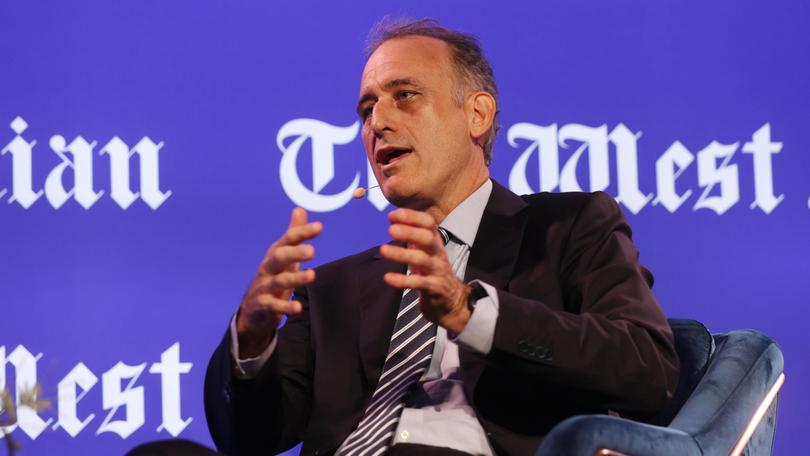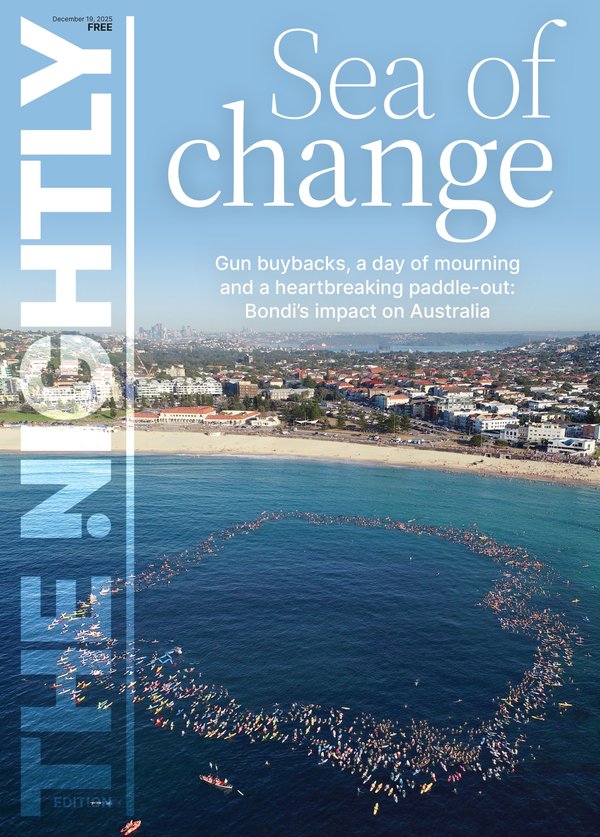Wesfarmers boss Rob Scott warns changes to IR system are ‘regressive’

Wesfarmers chief executive Rob Scott says changes to the nation’s industrial relations regime are regressive and could become dangerous for Australia.
Wesfarmers is one of the nation’s largest employers, with 120,000 employees through its divsions spanning retail, health and chemicals, lithium and fertilisers. Among its portfolio are Bunnings, Officeworks, Kmart, Target and Priceline.
Australia was losing flexibility from its IR system, Mr Scott warned, and he was concerned about that becoming a “dangerous situation”.
Sign up to The Nightly's newsletters.
Get the first look at the digital newspaper, curated daily stories and breaking headlines delivered to your inbox.
By continuing you agree to our Terms and Privacy Policy.“We’re moving to a lowest common denominator approach,” Mr Scott on Thursday told The West Australian’s Leadership Matters breakfast. “It is so difficult to get any progress with EBAs (enterprise bargaining agreements)
“We’re losing flexibility, the initiatives around same job, same pay, potentially, are going to go further in unwinding the real power of enterprise-level agreements.
“When you add complexity and reduce flexibility from a workforce, I think that is a dangerous situation. So we are concerned about it.
“I think my concern is that we might see this short-term sugar hit of wages going up but then that creates the setting where companies cannot afford to employ another person, are not prepared to provide more hours.”
Mr Scott agreed there was an element of “we are going backwards”.
“This is a regressive move,” he said.
Mr Scott added there was much companies could do to help the situation. In Wesfarmers’ case, he said, there was a strong investment in technology and it was adapting ways of working, which would benefit its team if successful.
“If we are successful and can improve our profits, we’ll share those benefits with our team.”
Mr Scott’s comments came in a week in which Wesfarmers shares twice closed at record highs. Its strong run in recent weeks has pushed it up to be the country’s eighth-largest listed company by value, overtaking investment bank Macquarie.
Wesfarmers in 2022 acquired Australian Pharmaceutical Industries, the parent company of the Priceline pharmacy chain, and is growing its healthcare division.

Mr Scott said he was also concerned the challenge facing Australia in health, with major problems that had to be dealt with as a society.
“It’s really important we understand those issues because, quite frankly, I’m really worried about (that) unless weight we as a nation to get on top of health care — make it more accessible, more affordable — then we’re going to have real problems.”
A recession in Australia is not expected, though Mr Scott noted no one was smart enough to predict the future and it was particularly tough to make economic predictions.
“I think there is a risk that inflation will be more persistent, and if inflation is more persistent, there is a risk that it will take longer to see interest rates go down,” he said.
“So I think that is a particular challenge in Australia, because we have a lot of cost pressure, an enormous amount of cost pressure in Australia, moreso than we’re seeing in some other nations.”
Aggregate demand from consumers was still “reasonably solid”, he said, largely supported by strong population growth, still-low unemployment and a degree of accumulated savings built up during the pandemic.
“But there are some segments of the market, both households and businesses, that are doing it tough,” Mr Scott said. “Younger families with mortgages are really getting crunched around cost of living pressures, mortgage repayments, and . . . those households are really focused on value.”
He added for many of Wesfarmers businesses, like Bunnings, Kmart and Officeworks, this was beneficial given their well-known and well-marketed stance for lowest prices. Some businesses were also doing it tough, he said.
“The more value conscious households are, then hopefully the more share we will capture,” Mr Scott said.
“There’s definitely some stress out there. But what I think what we try and do in our businesses is make sure that we are meeting the needs of customers and the value element is just so important.”
In a wide-ranging conversation moderated by former Sunrise host David Koch AM, Mr Scott also reported strong results at Bunnings stores recently and temporarily rebranded “Hammerbarn” as part of a tie-up with wildly popular children’s television program Bluey.
“It’s really exceeded on the upside,” Mr Scott said.
“It has been remarkable. The stores that have Bluey, the ‘Hammerbarn’ stores, materially outperformed in sales, so hopefully there’ll be more ways of getting Bluey in stores.
Mr Scott was also asked about how Wesfarmers allocates capital. The company in 2018 sold out of its coal business and divested supermarket giant Coles, which became a separately-listed business.
Ms Scott said the simple approach the company took to capital allocation was whether a company would deliver a satisfactory return to shareholders — satisfactory being in the top quartile of returns over the long-term.
“That is the number one reason,” he said. “If we don’t believe that that’s going to happen, then we simply won’t make an acquisition or an investment.
“Not overpaying for things that’s really important, finding businesses that have a point of competitive advantage, or businesses that have opportunities to unlock value.”
